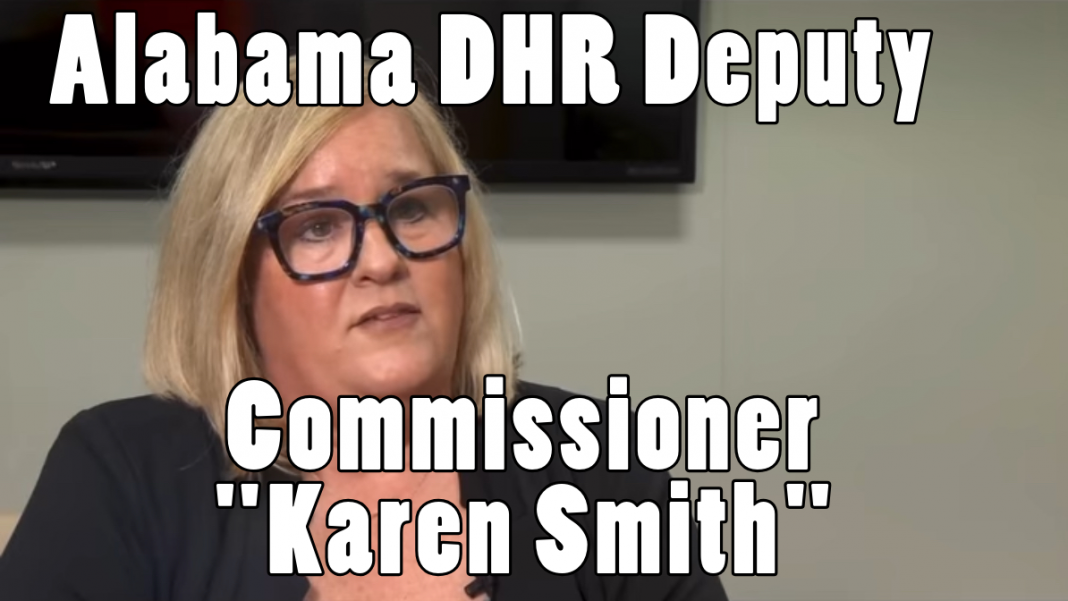
When asked whether she believed every individual listed on Alabama’s abuse registry deserved to be there, Karen Smith, Deputy Commissioner of Children and Family Services, answered without hesitation.
“I do.”
Her reasoning was equally stark.
“Because there was an allegation of abuse, neglect, or exploitation. Those individuals had an opportunity to interact with staff.”
There was no mention of criminal convictions. No discussion of due process. No recognition of the difference between accusation and proof. For Smith, the threshold for being placed on the registry appears to be not evidence, but an internal conversation with agency personnel.
This is the current standard in Alabama. A state registry capable of altering a person’s life indefinitely based on unproven claims.
A Registry Without Trial
In Alabama, the abuse registry does not require a court ruling. Individuals may be listed without ever being arrested, charged, or convicted. There is no guarantee of a hearing. In many cases, those added to the list are not even notified until after the fact.
The impact is sweeping. Those whose names appear on the registry may lose their jobs, their professional licenses, and, in custody proceedings, their children. The stigma is immediate. The consequences are long-lasting.
When asked whether people who were denied due process should have a path to clear their names, Smith did not give a direct answer. Instead, she offered vague assurances that the agency might be open to having that conversation if individuals brought concerns forward.
But she made no promise of a remedy. And no commitment to making things right for those already harmed.
“I cannot guarantee that it would be retroactive,” she said.
Should it be?
“I think it would probably depend on the situation.”
Her comments left no clear policy, no defined process, and no guarantee of fairness. For those whose lives have already been upended, the message was unmistakable. The state may have made its decision, and it may choose not to revisit it.
The Absence of Safeguards
Supporters of the current registry argue that it protects vulnerable children and gives social workers tools to prevent harm. Critics counter that it operates with few checks and even fewer rights for the accused.
Unlike the criminal justice system, the registry is governed by internal determinations made by child welfare staff. In practice, this often means that hearsay, misunderstandings, or retaliatory reports can result in a lifetime designation as a perpetrator of abuse or neglect.
Many of those listed were never given the chance to respond. Some were unaware an investigation had taken place until they were denied a job or lost custody. Others attempted to appeal, only to discover that their options were limited or nonexistent.
The Human Toll
The registry includes a broad cross-section of individuals: parents, grandparents, educators, medical professionals, and foster caregivers. Many insist they were falsely accused or improperly investigated. Some never saw a courtroom. Others were exonerated elsewhere but remain listed.
Though data on the number of removals or reversals is scarce, anecdotal evidence suggests that individuals who are wrongfully listed face a difficult, sometimes impossible, task of restoring their names.
Karen Smith did not address these outcomes in detail. Her comments suggest that from the agency’s perspective, the presence of an allegation is enough.
An Ongoing Debate
At the heart of this issue is a tension between protection and due process.
Few would argue against safeguarding children. But critics of the registry ask: Should such protection come at the cost of transparency, fairness, and constitutional rights?
Smith’s remarks reflect a growing trend among state agencies to rely on internal processes rather than judicial ones. In doing so, they have created parallel systems of punishment. Systems where the accused are labeled, restricted, and often condemned without the protections afforded in court.
For those watching closely, her words signaled not just a defense of policy, but a window into how child welfare agencies view accountability.
If a single allegation and a staff interaction are all it takes to lose your standing, your stability, and in some cases, your child, what remains of the presumption of innocence?
And who, in the end, is protecting the people from the system, a system we must not forget is made up of individuals, each with names, titles, and choices?
A Question for Karen Smith
If an allegation and a brief interaction with staff are all it takes to place someone on Alabama’s abuse registry, then what would happen if that same process were applied to you?
If someone falsely accused you, and you were listed without ever seeing a courtroom, without ever presenting evidence, without ever facing your accuser, how would you respond?
Can you, as a public official, acknowledge the devastating reality that not every name on that list belongs there?
And if you cannot, then what does that say about the system you stand behind?
🔴 Call to Action
If you or someone you love has been placed on Alabama’s abuse registry without a hearing, trial, or proper investigation, we want to hear from you.
📩 Submit your story confidentially at familiesvsdhr.org/contact
Your voice matters. Your case matters. We are building a record.
This registry is being used as a weapon.
It’s time to demand transparency, due process, and reform.